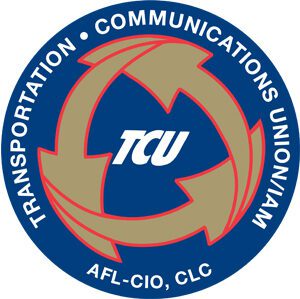 New York, NY, September 15, 2025 — The Transportation Communications Union/IAM (TCU/IAM), together with the coalition of unions representing workers on the Long Island Rail Road, announced today that they are formally requesting the appointment of a Presidential Emergency Board (PEB) after more than two years of stalled negotiations with the MTA and LIRR.
New York, NY, September 15, 2025 — The Transportation Communications Union/IAM (TCU/IAM), together with the coalition of unions representing workers on the Long Island Rail Road, announced today that they are formally requesting the appointment of a Presidential Emergency Board (PEB) after more than two years of stalled negotiations with the MTA and LIRR.
TCU/IAM represents over 1,300 craft employees on the LIRR, including operators, dispatchers, ticket agents, and ushers. Despite years of bargaining in good faith, management has refused to offer an agreement that provides real wage gains and keeps pace with the rest of the commuter rail industry.
“For more than two years, our members have heard excuse after excuse for why they cannot get a fair contract,” said Nick Peluso, National Vice President of TCU/IAM. “The clock has run out. Our members deserve raises that reflect their vital role in keeping the LIRR running and serving millions of riders. The time for excuses is over.”
Governor Kathy Hochul has failed to step up to the plate. She has continued to show LIRR workers and New Yorkers that she does not care.
“Unfortunately, it appears the LIRR and the MTA have convinced Governor Hochul that her hands are tied,” Peluso said. “So, instead of working with labor to reach a productive solution, Governor Hochul has decided to play games. Games of political convenience and the worn-out “blame game” of blaming the current administration. This is nonsense. She knows it, we know it, and the riding public should know it too.”
While we are proud to stand in solidarity with our coalition partners, we want to stress that our members remain our union’s top priority.
“We are confident we will secure an agreement that meets our members’ expectations, and we will not stop fighting until we do,” he said.
Background
TCU/IAM, along with its coalition partners, is exercising its right under the Railway Labor Act to request that the President of the United States appoint a Presidential Emergency Board (PEB). A PEB investigates disputes between rail carriers and unions and issues recommendations aimed at resolving them.

